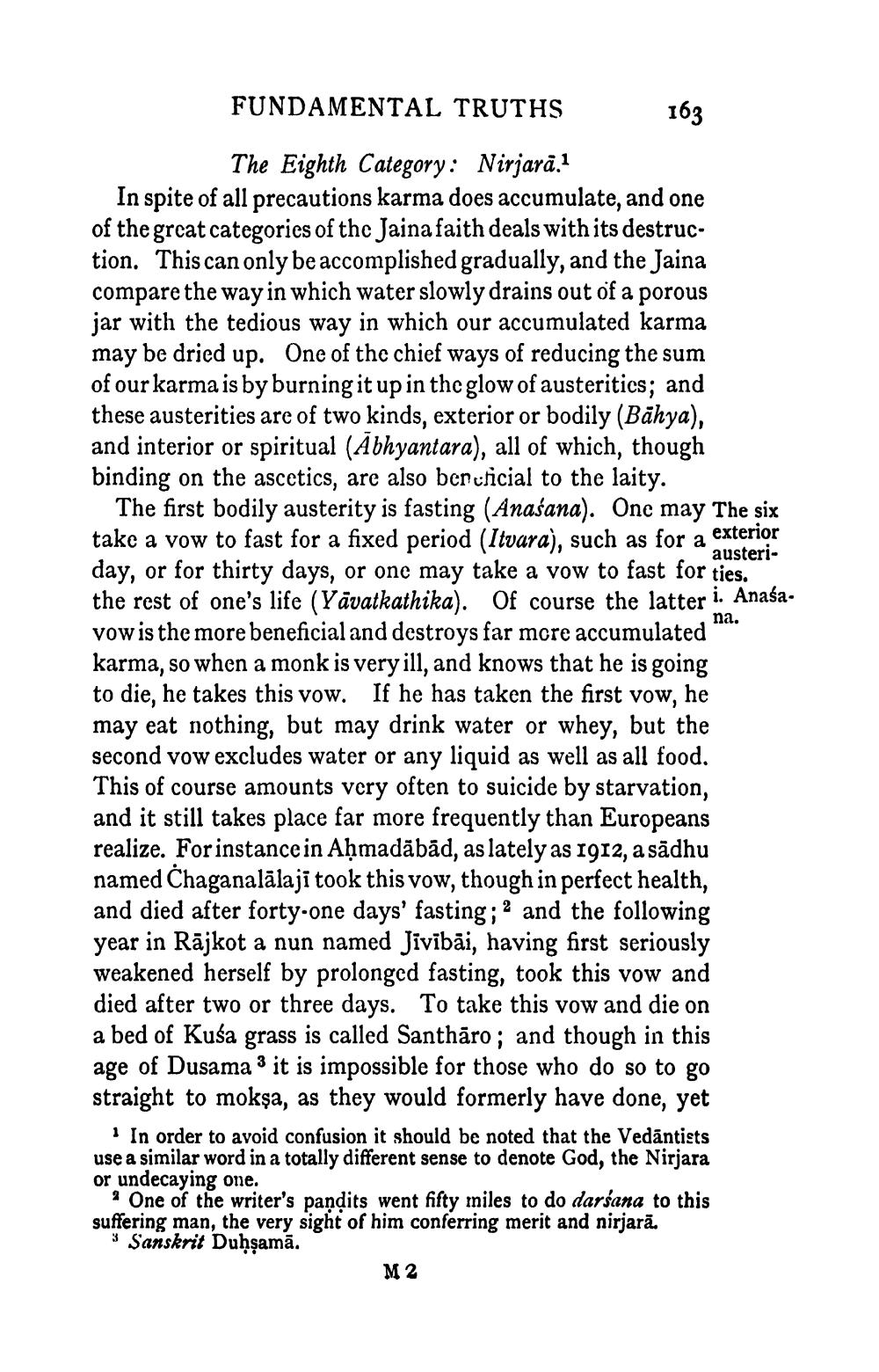________________
FUNDAMENTAL TRUTHS
The Eighth Category: Nirjara.1
In spite of all precautions karma does accumulate, and one of the great categories of the Jaina faith deals with its destruction. This can only be accomplished gradually, and the Jaina compare the way in which water slowly drains out of a porous jar with the tedious way in which our accumulated karma may be dried up. One of the chief ways of reducing the sum of our karma is by burning it up in the glow of austerities; and these austerities are of two kinds, exterior or bodily (Bāhya), and interior or spiritual (Äbhyantara), all of which, though binding on the ascetics, are also beneficial to the laity.
exterior
na.
The first bodily austerity is fasting (Anaśana). One may The six take a vow to fast for a fixed period (Itvara), such as for a austeriday, or for thirty days, or one may take a vow to fast for ties. the rest of one's life (Yavatkathika). Of course the latter i. Anaśavow is the more beneficial and destroys far more accumulated karma, so when a monk is very ill, and knows that he is going to die, he takes this vow. If he has taken the first vow, he may eat nothing, but may drink water or whey, but the second vow excludes water or any liquid as well as all food. This of course amounts very often to suicide by starvation, and it still takes place far more frequently than Europeans realize. For instance in Aḥmadābād, as lately as 1912, a sadhu named Chaganalälaji took this vow, though in perfect health, and died after forty-one days' fasting; and the following year in Rajkot a nun named Jīvībai, having first seriously weakened herself by prolonged fasting, took this vow and died after two or three days. To take this vow and die on a bed of Kusa grass is called Santharo; and though in this age of Dusama 3 it is impossible for those who do so to go straight to mokşa, as they would formerly have done, yet
2
163
1 In order to avoid confusion it should be noted that the Vedantists use a similar word in a totally different sense to denote God, the Nirjara or undecaying one.
* One of the writer's pandits went fifty miles to do darsana to this suffering man, the very sight of him conferring merit and nirjarā.
Sanskrit Duhṣamā.
M 2




